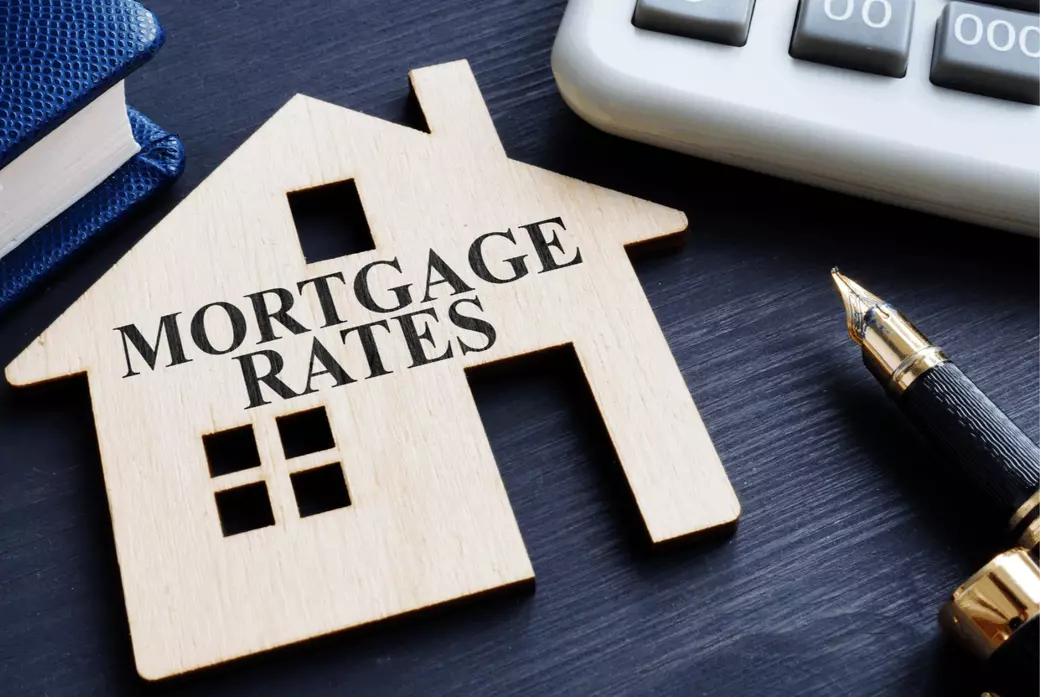Understanding Mortgage Rates: How They Impact Your Home Purchase

When it comes to buying a home, one of the most important factors to consider is the mortgage rate. Mortgage rates can significantly influence your monthly payments, the total cost of your loan, and even the type of home you can afford. Whether you're a first-time homebuyer or a seasoned real estate investor, understanding how mortgage rates work and how they impact your home purchase is crucial. Let’s dive into the basics of mortgage rates and what you need to know.
What Are Mortgage Rates?
A mortgage rate is the interest rate you pay on your home loan. It’s essentially the cost of borrowing money from a lender to purchase a home. Mortgage rates can be either fixed or variable (adjustable):Fixed-Rate Mortgage: This type of mortgage has an interest rate that remains the same for the entire term of the loan, typically 15, 20, or 30 years. This stability provides predictability, making it easier to budget your monthly payments.
Adjustable-Rate Mortgage (ARM):
In contrast, an ARM has an interest rate that can fluctuate over time, usually after an initial fixed-rate period. While ARMs often start with lower rates, they can increase or decrease based on market conditions, leading to potential changes in your monthly payment.
How Are Mortgage Rates Determined?
Mortgage rates are influenced by a variety of factors, both at the macroeconomic level and based on your personal financial situation:Economic Factors: Mortgage rates are closely tied to the broader economy. Key indicators like inflation, employment rates, and economic growth all play a role in determining rates. For example, when the economy is strong, mortgage rates tend to rise, while economic downturns often lead to lower rates as the Federal Reserve adjusts interest rates to stimulate the economy.
Your Credit Score:
Your credit score is one of the most significant factors lenders consider when determining your mortgage rate. A higher credit score typically means a lower interest rate, as it indicates to lenders that you're a responsible borrower. Conversely, a lower credit score may result in a higher rate, increasing your monthly payments.
Loan Term:
The length of your loan term can also impact your mortgage rate. Generally, shorter loan terms, like 15-year mortgages, come with lower interest rates but higher monthly payments. Longer terms, such as 30-year mortgages, may have higher rates but offer lower monthly payments.
Loan Type and Size:
The type of loan you choose (conventional, FHA, VA, etc.) and the size of your down payment can also influence your mortgage rate. For instance, loans with lower down payments might have higher rates, as they are considered riskier by lenders.
The Impact of Mortgage Rates on Your Home Purchase
Mortgage rates directly affect how much you’ll pay for your home over time. Here’s how:
Monthly Payments:
Even a small change in the mortgage rate can significantly affect your monthly payment. For example, on a $300,000 loan, a 1% increase in the mortgage rate could add hundreds of dollars to your monthly payment. This difference can influence how much house you can afford and your overall budget.
Total Interest Paid:
The mortgage rate also determines how much interest you’ll pay over the life of the loan. A lower rate means you’ll pay less interest overall, potentially saving you tens of thousands of dollars. Conversely, a higher rate increases the total cost of your home, as more of your monthly payments go toward interest rather than paying down the principal.
Home Affordability:
Because mortgage rates affect both your monthly payment and total interest, they directly impact home affordability. In periods of low mortgage rates, buyers can often afford more expensive homes or benefit from lower payments on the same home. When rates rise, the opposite is true, and buyers may need to adjust their price range or increase their down payment to keep monthly payments manageable.
Refinancing Opportunities:
If mortgage rates decrease after you’ve purchased your home, you might consider refinancing your loan to take advantage of the lower rates. Refinancing can reduce your monthly payments and the total interest you pay, but it’s important to weigh the costs of refinancing against the potential savings.
Strategies for Navigating Mortgage Rates
Understanding mortgage rates is essential, but what can you do to get the best rate possible? Here are a few tips:
Improve Your Credit Score:
Before applying for a mortgage, work on boosting your credit score by paying down debt, avoiding late payments, and correcting any errors on your credit report.
Shop Around:
Don’t settle for the first mortgage offer you receive. Different lenders may offer different rates, so it pays to compare offers from multiple lenders.
Consider Loan Types:
Explore different loan types and terms to find the best fit for your financial situation. A 15-year fixed-rate mortgage, for example, might offer a lower rate, but ensure the higher monthly payments fit within your budget.
Lock In Your Rate:
If you’re worried about rising rates, consider locking in your rate when you find a mortgage offer you like. This guarantees your rate for a set period, typically 30 to 60 days, while you finalize your home purchase.
Conclusion
Mortgage rates play a crucial role in your home-buying journey, influencing everything from your monthly payments to the total cost of your loan. By understanding how mortgage rates work and what factors affect them, you can make more informed decisions and secure a mortgage that aligns with your financial goals.
As you navigate the complexities of mortgage rates, working with a knowledgeable real estate professional and lender can make all the difference. They can help you explore your options, understand the implications of different rates, and find the best mortgage for your unique situation. With the right strategy, you’ll be well on your way to making your dream home a reality.
Recent Posts

Black Friday? How About Black & Gold... Your Home & Wealth Strategy for 2026

Traditions Need a Space: The Power Move to Homeownership Before Holiday Chaos

Gather, Give Thanks & Grow: Why This Buyer Season Has Opportunity!

Stuffing, Sweet Potatoes & Strategy: How Fall Listings Give Sellers an Edge

Home Is Where the Hearth (and the Equity) Is: Getting Thanksgiving-Ready in Real Estate

How Buyers Can Be Successful in Today’s Market

Atlanta is Still Hot, But Not Just for the Reasons You Think

Rent is a Membership to Nowhere. Here’s How to Exit.

Credit Ugly? Let’s Fix It and Get You to the Closing Table.

Buy Now, Refi Later? Let’s Talk About It.

